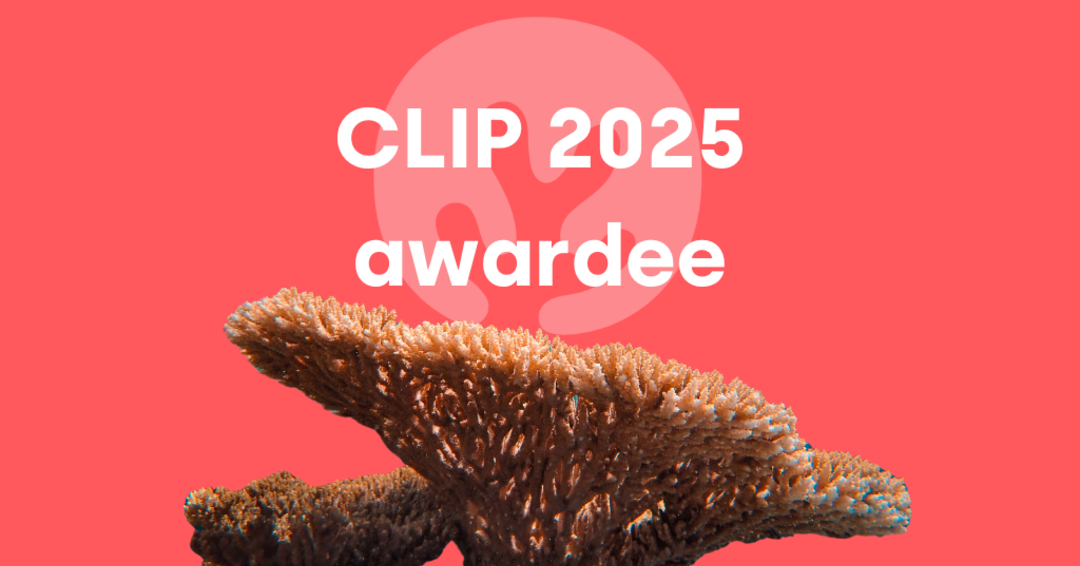Project title: Coral-RESIST: Coral Recruit Enhanced Survivorship through Innovative and Sustainable Technology
Lead applicant: Andreina Valdez Trinidad
Co-applicants: Dr. Sergio D. Guendulain García
Countries involved: Dominican Republic, Mexico
Takes place: Dominican Republic
Supporting institutions: Fundación Dominicana de Estudios Marinos (FUNDEMAR), Unidad Académica de Sistemas Arrecifales, Universidad Nacional Autónoma de México (UNAM)
Total budget: USD 96,600
Duration: 18 months
Project overview
Across the Caribbean, decades of coral reef degradation, combined with marine heatwaves, coral disease, and mass die-offs of herbivores, have left many reefs unable to recover on their own. Outplanting corals alone has proven insufficient: degraded sites often lack the ecological functions needed to support coral reproduction, growth, and natural recruitment. Overgrowth of macroalgae, fueled by the loss of herbivores such as Diadema urchins, further reduces the chances of success. Limited infrastructure, resources, and access to spawning events add to the challenges, underscoring the urgent need for holistic, scalable, and affordable restoration approaches.
An integrated solution designed to improve both coral survival and reef health is urgently needed to help bring coral reefs from the brink. This team will strengthen the resilience of corals produced through assisted sexual reproduction by applying feeding treatments that boost their health before outplanting. These corals will be safeguarded in in situ orchards, which consolidate recruits from multiple species and serve as reliable long-term sites for spawning and gamete collection — reducing dependence on already-stressed wild populations. At the same time, the project will restore a critical ecological function by rearing and deploying Diadema antillarum urchins, natural grazers that keep macroalgae in check and create space for corals to thrive.
Specific objectives
- Improve coral survivorship and growth in the lab, while strengthening resilience against environmental stressors after outplanting.
- Establish in situ coral nurseries as living banks of assisted sexual recruits from multiple species.
- Develop and pilot a culture system for Diadema antillarum urchin to support repopulation, restore herbivory, and control macroalgae overgrowth.
How the objectives will be met
Improve coral survivorship and growth in the lab:
- Implement low-cost laboratory upgrades.
- Grow coral assisted sexual recruits under optimized conditions (e.g., water quality and feeding treatments).
Establish in situ coral nurseries as living banks:
- Deploy enhanced corals in in situ
- Monitoring coral survivorship and growth.
Herbivory re-establishment:
- Collect Diadema antillarum
- Start husbandry of Diadema antillarum
- Deploy urchins to intervention sites and coral orchards.
Impact of the Project
- Potential to enhance the efficiency and cost-effectiveness of ongoing coral-assisted sexual recruit production by 12x.
- Replicable methodologies, open-access protocols, and regional training to support broader adoption.
Major highlights
- Local stakeholders (e.g., dive centers and volunteers) will be integrated throughout the project via periodic updates, shared data, and collaborative monitoring activities.
- Combines coral health interventions, ecological restoration of herbivory, and practical, low-cost modular culturing systems.
- Sustainable, holistic model for reef restoration that improves coral survivorship, rebuilds ecological balance, and strengthens local capacity in resource-limited settings.
- Facilitate knowledge transfer among Dominican Republic, Cuba, Jamaica, Haiti, Bonaire, and Puerto Rico.

